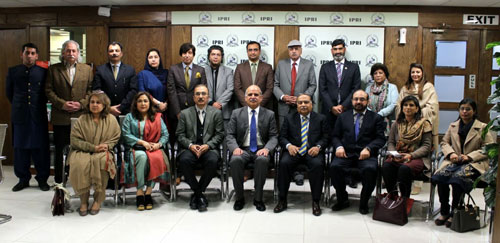Staff Reporter
The menace of terrorism, which is often politically motivated, has bedevilled Pakistan for decades, despite successful kinetic operations against militant outfits. The aftermath of years of war on terror, man-made and natural disasters, ethnic and sectarian conflicts, poverty, inequality and injustice have etched the psycho-social fabric of the country adversely. The virtually un addressed psychological damage has instilled a sense of perpetual fear leading to insecurity, paranoia, and intolerance into the minds of the citizens. Despite being a resilient nation, Pakistanis live through un-remitting emotional and social trauma on a daily basis. Unregulated, irresponsible and insensitive media reporting is an impact multiplier of terrorism in Pakistan. Given groundbreaking new frontiers in neuroscience on the various ways brain stimulation can enhance thoughts and behaviours, a much needed review of its applications not only in the security services and military but also on ordinary citizens is the need of the hour. This was discussed at the Roundtable on Psycho-Social Toxicity in Pakistan: A Fallout of Terrorism organized by IPRI here in the capital today. The roundtable moderated by
Dr Muhammad Tahir Khalily, Vice President (Academics), Department of Psychology, International Islamic University included Dr Shakil Jehangir Malik, Professor of Psychiatry, University of Sussex, UK as the Keynote Speaker. The roundtable attended by eminent psychiatrists, ex-military servicemen, law enforcement representatives and media, including Dr Uzma Masroor from Air University; Lt. Gen. (R) Shahid Iqbal; Dr Zarqa Suharwardy Taimur; Brig. Babur (R) Barlas; M. Ali Babakhel, Director NACTA; Dr Salma Siddiqui from NUST; Dr Adeela Rehman from Fatima Jinnah Women University; and Air Cmdr. (R) Tanweer N Siddiqui.










